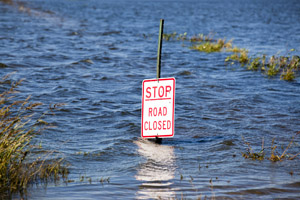With summer comes severe weather, so it doesn’t hurt to be prepared for storms, extreme heat and floods. It’s important to be able to recognize an impending hazard and know how to take action so you and your family can stay safe. Here are steps you can take for any emergency:
1. Make a Family Emergency Plan
Families aren’t always together during an emergency, so it’s important to plan ahead. Download the Family Communication Plan for Parents and Kids and fill it out together, so everyone knows what to do. This covers important information, like where to meet and how to contact each other during an emergency. Look into emergency preparedness plans at places where your family members spend the most time (school, work, sports events, etc). If no plans exist, volunteer to make one! Get started planning with these critical questions.
2. Build a Go-Kit (Emergency Bag)
A disaster go-kit contains any household items that you and your family could need in an emergency. Because there’s a chance you’ll have to survive on your own after an emergency, the kit should have food, water and other supplies to last you at least 72 hours.Your kit should also include supplies that don’t require electricity, gas or water, as these might be inaccessible during a disaster. Find out what you need in your emergency preparedness go-kit.
3. Download an App
FEMA offers an Apple iOS and Android app that contains:
- Disaster safety tips
- An interactive emergency kit list
- Meeting location information
- A map with open FEMA shelters
Ready Virginia also offers an emergency preparedness app, which provides you with information about local weather and public health alerts. The Ready Virginia app is similar to FEMA’s and offers maps of nearby American Red Cross shelters, hurricane evacuation routes and “This Day in Hazard History” trivia.
4. Listen to the Radio
Stay updated on severe weather by listening to the local radio. Remember to keep a battery-operated radio on hand in case you lose power in an emergency. If you have access, NOAA Weather Radio broadcasts warning and post-event information for all types of emergencies, including natural events, environmental accidents and public safety concerns.